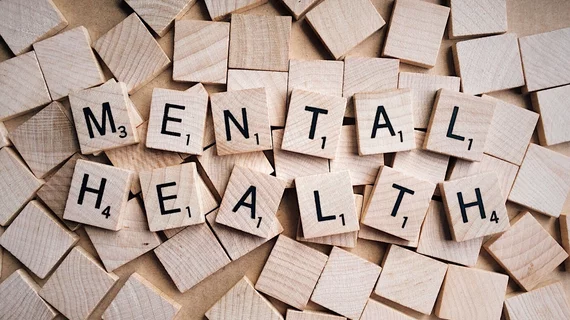5 ways to tackle mental health after a heart attack
CVD and depression are a two-way street, capable of inflicting considerable damage on one another. So how do heart patients protect their mental health after a life-threatening event like MI?
According to a blog post from the Cleveland Clinic, it’s normal for a person to not feel like themselves after a heart attack or heart disease diagnosis, and that makes sense given the inherent uncertainty and fear about their future. But, while a “certain amount of sadness and fatigue are par-for-the-course,” those moods should lift as patients re-establish a regular life routine.
Below are five tips for staying on top of mental health after a CV event.
1. Stay vigilant of physical symptoms.
It’s important to take care of yourself after a heart event, health psychologist Carolyn Fisher, PhD, said in the Cleveland Clinic blog, noting that includes a healthy diet, enough sleep and adequate exercise. Since the mind and body are so connected, Fisher said feelings of depression can translate to physical symptoms like a lack of motivation to get up and move or take medications.
According to a Harvard Medical School post from 2006, mind and mood can also overlap to create a chronic state of emergency within the body, triggering elevated stress hormone levels, tenser blood vessels and low heart rate variability for extended periods of time.
“For some people, their depression could be triggered by something pertaining to a cardiac event, such as their physical symptoms, medication reactions, recovery, changes in lifestyle or feeling overwhelmed,” Fisher said.
2. Prioritize self-care.
According to Fisher, self-care is key to recovery after a heart attack. Sometimes it could mean choosing a healthy diet; other times it could be saying no to tiring or stressful obligations, prioritizing enjoyable activities or practicing relaxation techniques.
Fisher said a good fraction of MI patients are used to a “long-standing role of being ‘the helper’ or ‘provider,’ and the idea of taking care of themselves might seem foreign,” but it’s important they give themselves permission to take the time and effort to nurture themselves.
3. Establish a support system.
In 2017, a team of researchers reported in the European Heart Journal that married heart patients were 14% more likely to survive heart attacks than single patients, and other studies have backed that idea, finding people were more likely to die in the 9 years after a heart attack if they didn’t talk to their doctors, rarely visited friends and family and didn’t belong to any organizations.
According to the Harvard post, the size of an MI survivor’s social circle isn’t nearly as important as their belief that they can get help if and when they need it. Whether they’re living alone or not, research has found heart attack patients are more likely to die or have a recurrent CV event if they lack friends they can turn to in tough times.
“I encourage patients to use their support system,” Fisher said in the Cleveland Clinic blog. “Asking for help when needed can be a challenge for many patients after a heart attack, but it is critical that patients feel supported.”
4. Keep an eye on medication regimens.
Like Fisher said, some medications could actually increase a person’s risk for depression. According to Harvard, selective serotonin reuptake inhibitors (SSRIs), some of the most popular antidepressants today, have less serious physical side effects than other antidepressants and don’t, to our knowledge, disturb heart rhythms. Still, they can lower the clotting capacity of the blood, opening patients to an increased risk of abnormal bleeding.
Reactions to other medications could also affect a person’s mental state, Fisher said, so it’s important to check in with a physician when something doesn’t feel right.
5. Consider cardiac rehabilitation.
Cardiac rehab isn’t widely attended in the U.S., but physicians often recommend such programs to MI patients. Cardiac rehab can help people understand nutrition, stick to exercise routines, develop sustainable healthy behavioral changes and improve their quality of life.
The Harvard post also noted individual psychotherapy can relieve depression and anxiety in heart patients, but it doesn’t lower their risk of cardiovascular events or death.
Fisher said patients and their caretakers should keep an eye out for persistent negative thinking, suicidal tendencies and physical symptoms of depression when recovering from a heart attack. The national suicide prevention lifeline is accessible 24 hours a day, 365 days a year at 1-800-273-8255.

